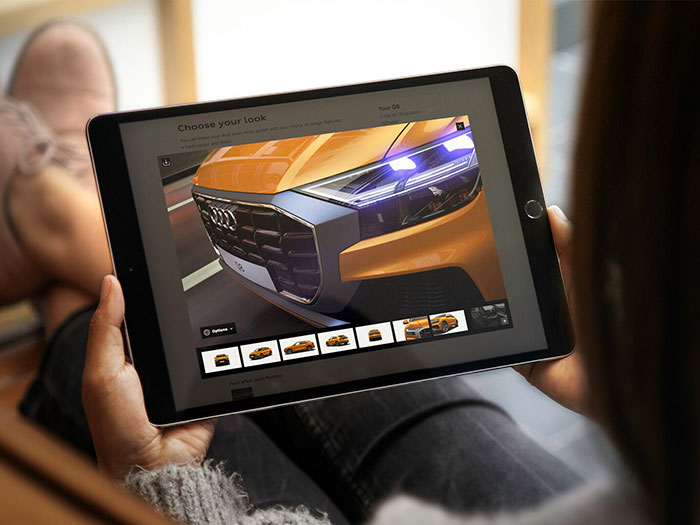Mobility and Covid-19: how users' habits are changing
Covid-19 is posing enormous challenges for the world, accelerating digitalisation and resulting in people making more use of their bikes and cars. This is how Audi is tackling these changes.
The statistics confirm the obvious: during the pandemic, rather than using public transport, people feel safer and more protected when travelling in their own cars. Car owners prefer to use their vehicles so as to minimise contact with others.
The Coronavirus pandemic is an enormous challenge for the whole world. There are some important signals that the automotive sector, and Audi in particular, need to understand. “Individual mobility has become much more important,” explains Oliver Hoffmann, COO of Technical Development at Audi. Interest in cars has grown considerably − including among younger generations, who have mostly used public transport up to now.
Digitalisation

The Covid-19 crisis has hit the entire automotive industry right in the middle of a transformation process in which digitalisation and sustainability are playing a pivotal role. “We see a clear trend,” adds Christiane Zorn, Head of Product Marketing at Audi. “Digital, virtual purchasing options are becoming increasingly important. That’s why we are liaising closely with the regions, markets and retailers, defining appropriate measures together.”
A year ago Audi made contactless car buying possible: it introduced a contactless handover as well as providing online sales advice and a virtual tour of the vehicles. “The delivery figures of the past few months make us optimistic about the future.”
Online services

“In the future there will be more such online services. When a customer realises how easy and efficient this process is, they will certainly stick with it in the future – and others will follow,” Zorn continues before describing the new target groups. “These users are interested in design, digitalisation, connectivity, and innovative technical features. The car of the future, the Audi of the future, is the connected technology of the smart car.”
That’s why Audi is conducting studies around the world to ensure that its future models are at the cutting edge and really meet customer needs.
Sustainability

“This period in history is confirming what we already knew. People, in particular 20-to-30 year-olds, want to be mobile, but without having a guilty conscience or neglecting ethical and environmental issues. This means that they are very interested in environmentally friendly cars and how they are manufactured. That’s why sustainability is the key corporate goal and CO2 compliance is a top priority for us,” explains Hoffman, who goes on to discuss future Audi cars in connection to pandemic-driven trends. “The interior of the vehicles is increasingly becoming a living space. It should convey a certain lifestyle feeling with a feel-good factor.”
Audi has also added “Functions On Demand”, which enables users to add digital functions after purchase − giving them greater flexibility in how they use their car in the future.
Source: AUDI AG
